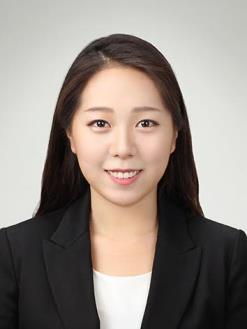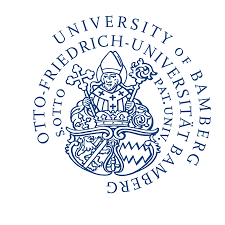
Dear Sooahn, you've been in Bremen for just under two weeks, welcome to CRC 1342! Where were you the years before and what did you do during that time?
I did my bachelor's degree in political science with a minor in North Korean studies in Seoul. Afterwards, I studied International Relations in Berlin in a joint Masters programme of the Freie Universität, the Humboldt-Universität and the University of Potsdam. That was very cool, three universities at once! I got to know a lot of different people and learned a lot about the different structures of the universities.
Was the programme designed to last one or two years?
Two years. You had to collect half of the credit points in English, the others in any other language. That made the programme very international, with many students from different countries.
Why had you decided to do a Master's programme in Germany?
During my Bachelor's programme in Seoul, I did three semesters abroad in Germany: in Trier, in Chemnitz and in Berlin. I liked Berlin the most. After my Bachelor's degree, I wasn't sure whether I should continue my studies. So I did an internship at the South Korean General Consulate in Frankfurt and then worked for a year as a consular assistant in the Political Affairs Department. After this one and a half years, I thought: now I'm ready to continue studying, and I moved to Berlin.
Bremen is a beautiful city with a high quality of life, but not many people move here from Berlin. What tipped the scales for you?
I was looking for papers on Covid-19 and International Organisations and came across Kerstin Martens, whose name I still knew from my Bachelor's degree. That's how I found the pages of the University of Bremen and saw that Kerstin and her colleagues were looking for new staff. I applied at the end of February. The interview was really nice, and I got the job offer the same afternoon! But I wasn't sure if I wanted to move from Berlin to Bremen all by myself, because I had established my personal infrastructure over the years with friends, family and so on. I also didn't know whether a PhD was really the right thing for me. But then Kerstin called me and we talked for over an hour about the project and the colleagues. After that I was sure: I can start my PhD journey in this constellation.
Have you always been interested in International Organisations?
Yes, ever since my Bachelor's programme, in which I also studied North Korean Studies. As a South Korean, I have no access at all to original data or media reports from North Korea. As a non-South Korean, it's quite different: with a German IP address, for example, I can look at North Korean websites. This is not possible from South Korea. Any exchange with North Korea that you do not clarify with the South Korean authorities before or after the interaction is illegal for South Koreans. One way of approaching North Korea is through International Organisations. That's why I've been very interested in IOs like the United Nations Security Council since the beginning of my studies, because it has a lot to do with North Korea.
Your project examines how International Organisations have influenced the Covid 19 policies of nation states and has several segments: You are researching global IOS, regional IOs and conducting country case studies. What segment will you be working in?
I will be responsible - this is my current status after two weeks in Bremen - for the OECD as a global IO and ASEAN as a regional organisation. And as a case study I will be working on Thailand, because there is obviously a direct ASEAN connection.
Do you already have a topic in mind for your doctoral thesis?
I'm reading a lot at the moment to flesh out my idea. In my doctoral thesis, I would like to examine not only the recommendations of the IOs, but also how the countries react to them or also influence the work of the IOs, for example through feedback or best practice. So I want to complement the top-down with the bottom-up perspective. I am also interested in digital technology, which is what I wrote my master's thesis on. It was about how digital technology influences the stability of authoritarian regimes. As you know, digital technologies play a big role in pandemic politics, e.g. through digital vaccination certificates, working from home, or tracing apps. Digital technologies have many positive effects, but also negative ones. For example, certain social groups have been partly ignored or marginalised in the use of digital technologies, e.g. older people or those without access to technical devices. I would like to look closer at such processes in my thesis.
And do you already have plans for the time after your PhD?
I would like to use the next three and a half years to think about that. But I would like to continue working in academia.
Contact:
Sooahn Meier













